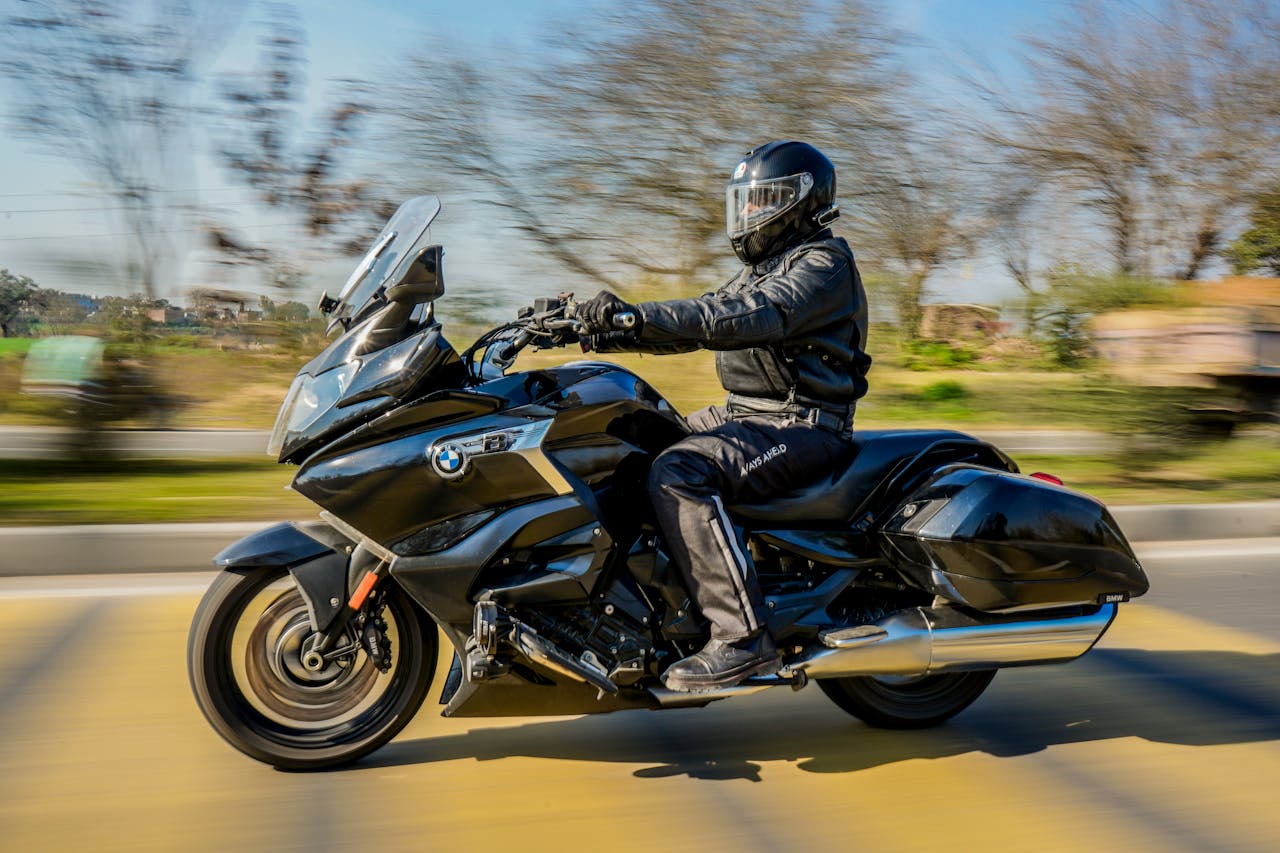Feelings of anxiety before a motorcycle practice exam aren’t uncommon. Even skilled riders can feel a wave of nerves when they’re about to be tested. That mix of pressure and adrenaline can mess with your focus, timing, and memory. Your hands might shake a bit more, your thoughts could go foggy, and everything you’ve learned suddenly feels harder to recall. Sound familiar? It’s something plenty of riders go through across all experience levels.
Learning how to handle those nerves goes a long way toward boosting your test performance. It’s not just about muscle memory or controlling the bike anymore. Your mindset and your ability to stay calm under pressure make a big difference. Knowing how anxiety shows up, what triggers it, and what you can do about it can help you walk into the exam with a much steadier grip, physically and mentally.
Understanding Test Anxiety
Test anxiety is what happens when a rider feels too much nervous energy before or during the motorcycle practice exam. It’s more than just feeling a bit restless. It affects both your body and your mind, and it can interfere with how well you ride during the test.
You might notice:
– Sweaty palms or trembling hands
– Tight muscles, especially in the arms or shoulders
– A racing heart
– Trouble focusing on instructions or road signs
– Negative thoughts like “I’m going to mess this up” or “I’m not ready for this”
When you’re feeling anxious like that, even your best habits can slip away. You might forget to do a head check or stall during a slow-speed turn you’ve practised dozens of times. That space between what you know and what your nerves allow you to do can be frustrating. The good news is it doesn’t mean you’re not ready—it just means you have something extra to manage alongside your riding skills.
It helps to remind yourself that this feeling is normal. Many riders feel the same. It’s easy to think that everyone else is cool and collected, but most are working through their own nerves. Understanding that you’re not alone can take some of the pressure off. This isn’t about avoiding fear altogether. It’s about knowing how to manage it so it doesn’t steer the bike for you.
Common Causes Of Test Anxiety For Motorcycle Riders
Everyone feels pressure in their own way, but there are some shared reasons why riders feel edgy before a motorcycle practice exam. Knowing what’s behind your anxiety can help you address it head-on and build a stronger plan going into the test.
Here are some of the most common triggers:
1. Fear of failure
You’ve put in time and energy, so the idea of not passing can feel pretty overwhelming. Worrying thoughts like “what if I don’t make it” can distract you from what’s right in front of you.
2. Feeling judged
Whether it’s from mates, family, or the examiner, the idea that others are watching and judging your performance can make things harder. That pressure can affect your ability to focus on simple tasks.
3. Lack of confidence
If your training sessions haven’t gone as smoothly as you wanted, it’s easy to let self-doubt take control. Even a few small mistakes can make you feel like you’re behind, even if you’re right on track.
4. Bad past test experiences
Maybe it was a previous riding test or even something back from your school days. Those old memories have a way of popping up when the next challenge comes around.
5. Not knowing what to expect
Uncertainty can stir up anxiety just as much as the actual test. If you’re unsure what tasks you’ll be asked to perform or how the examiner will assess you, your mind might race trying to fill in the blanks.
By working out which of these apply to you, you can build a plan that targets your own stress points. Recognising them puts you back in control and lets you focus on preparing well instead of worrying.
Effective Strategies To Cope With Test Anxiety
There isn’t one trick that works for everyone, but a few basic techniques can make a big difference when it comes to calming your nerves ahead of a motorcycle practice exam. These aren’t meant to push away every anxious thought. They’re there to give you a bit more control so that when performing under pressure, you feel as in control of your mind as you do your bike.
Try adding these strategies into your prep routine:
– Deep breathing
Inhale through your nose for four seconds, hold it for four, and exhale through your mouth for four seconds. Repeat this a few times to lower your heart rate and help you focus.
– Regular riding practice
The more often you ride, the stronger your confidence becomes. These don’t always need to be formal sessions. Short practice rides where you review turns, signals, braking, and head checks help reinforce muscle memory.
– Mental rehearsal
Shut your eyes and walk yourself through each part of the exam in your mind. Visualise making turns, controlling your speed, responding to the examiner. This helps your brain get used to the test situation.
– Know the test format
Understand what your test includes so you’re not left catching up on the day. Ask questions about the assessment and get familiar with the structure to avoid surprises.
– Prepare a comfortable routine
Your pre-test routine can help settle the nerves. Whether that means a good breakfast, stretching, or listening to music on the way to the test, it helps you feel the day is under control from the start.
All of these steps work better when you practise them early, not just the day before. They’ll help boost your confidence and make calmer thinking just part of what you do.
Getting Support And Further Training
You don’t need to face test-day nerves alone. Often, just talking to someone about how you’re feeling is enough to deflate some of that pressure. Whether it’s a mate who’s done the test before, a family member who cheered you on during training, or even other riders who are going through the same thing, sharing your thoughts can help create a clearer mindset.
Support also comes in the form of extra training. If there’s something about the test that still makes your stomach flip, think about scheduling another session or two with a qualified trainer. A skilled instructor doesn’t just teach you to ride well—they can give feedback on areas where nerves tend to show up and work with you on fixing that. They’ll often have insights not only into riding skills but also test performance and mindset.
If you’ve practised heaps and still find those nerves creeping up, an instructor might help you figure out where the gaps are and how to close them. With that added support, you’ll feel more prepared, calm, and capable of riding through your exam with a lot more confidence.
What To Keep In Mind On Test Day
When the big day arrives, don’t panic. Showing up already in a stressed-out state can throw everything off. The key is in your setup. You’ve already done the hard work through training, so now it’s time to keep things steady and trust yourself.
Here are some useful steps to follow on the day of your motorcycle practice exam:
– Get a full night’s sleep beforehand
– Eat something light but filling in the morning
– Show up with time to spare
– Go through your breathing techniques if you feel tense
– Do a light ride beforehand if you’re allowed, just to get into rhythm
– Remind yourself that preparation beats panic
Confidence doesn’t mean you never feel anxious. It means trusting that the hard work you’ve done is going to show. Some nerves might stick around on test day, and that’s totally normal. The goal isn’t to get rid of them. It’s to keep them from calling the shots.
So when you’re sitting on the bike, ready to go, take a slow breath and remind yourself that you’re trained, you’re capable, and you’ve got this. Let habit take over. Let the practice you’ve built do its thing. Stay upright, stay calm, and ride like you’ve done so many times before.
Remember, test nerves are a shared experience, and getting the right support could make all the difference. At Stay Upright, our courses can guide you through every turn and checkpoint needed in preparing for a motorcycle practice exam. With the right training, you’ll gain the confidence to ride through the exam day smoothly.



